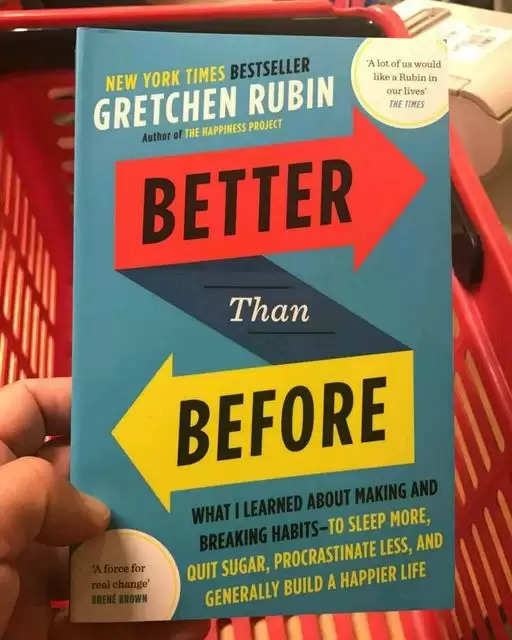7 lessons from Better Than Before: Mastering the Habits of Our Everyday Lives by Gretchen Rubin

Let’s dive deeper into these insights from Gretchen Rubin’s Better Than Before: Mastering the Habits of Our Everyday Lives. Each of these lessons provides a rich perspective on how we can harness the power of habits to improve our daily lives.
1. Self-Knowledge is the Foundation of Habit Change
One of the most enlightening points Rubin makes is that self-awareness is key to any habit change. It's like having a personal roadmap—understanding your own personality traits, preferences, and motivations can dramatically influence your ability to form new habits. She introduces the Four Tendencies framework, which categorizes people into Upholders, Questioners, Obligers, and Rebels. This classification helps individuals pinpoint how they respond to both internal and external expectations. For instance, if you identify as an Obliger, you might find that you thrive on external accountability, such as setting up a buddy system for a workout routine. Recognizing this about yourself can make all the difference in your habit-building journey.
2. Habits Shape Our Lives
Rubin emphasizes that our habits, whether we’re conscious of them or not, play a significant role in shaping our overall well-being. Think about it: from the moment we wake up to the time we go to bed, our daily routines and rituals are the threads that weave the fabric of our lives. By consciously choosing to cultivate good habits, we align our actions with our core values and long-term goals. For instance, if health is a priority, incorporating simple habits like drinking water first thing in the morning or scheduling regular walks can lead to substantial changes over time.
3. Start with a Clean Slate
Life transitions—like moving to a new city or starting a new job—can provide the perfect backdrop for breaking old habits and establishing new ones. Rubin calls this a “clean slate.” It’s as if you’re handed a fresh canvas, and you can choose what to paint on it. These moments can be incredibly empowering because they often disrupt old routines and create space for new behaviors to take root. Embracing these transitions can help you rethink your daily practices and make meaningful changes.
4. The Power of Accountability
Accountability can be a game-changer when it comes to forming new habits. Many people find it challenging to stay committed to their goals without some form of external support. This is especially true for Obligers, who tend to excel when they have someone or something holding them accountable. Whether it’s finding a workout buddy, joining a group, or using apps to track progress, creating a support system can reinforce your commitment and motivate you to keep going—even when the initial enthusiasm fades.
5. Make Habits Convenient and Easy
Another powerful lesson from Rubin is the importance of making new habits easy to adopt. The “Strategy of Convenience” involves simplifying the process so that the desired behavior becomes a natural part of your routine. For example, if you want to eat healthier, you might prep meals on the weekends so you have nutritious options ready to go during the week. Conversely, the “Strategy of Inconvenience” suggests making unwanted behaviors harder to engage in—like putting junk food out of reach or using apps to block distractions on your phone.
6. Avoid the All-or-Nothing Trap
Perfectionism can be one of the biggest obstacles to successfully establishing new habits. Rubin encourages readers to avoid falling into the “all-or-nothing” mentality. Instead of striving for perfect adherence, she suggests adopting a flexible mindset that focuses on consistency. The “Strategy of Loophole-Spotting” helps you identify justifications that might derail your efforts and encourages a more compassionate approach to setbacks.
7. Know the Difference Between Abstainers and Moderators
Lastly, Rubin distinguishes between Abstainers and Moderators when it comes to handling temptations. Abstainers do better when they completely avoid something, while Moderators can manage occasional indulgences without spiraling out of control. Understanding which category you fall into can guide your strategy for habit formation, helping you tailor your approach to what suits you best.
In summary, Rubin’s lessons highlight that self-awareness, personalized strategies, and realistic approaches are fundamental in cultivating habits that lead to a fulfilling life. By understanding ourselves better and implementing practical tactics, we can create lasting change that resonates with our goals and values. So, whether you’re looking to enhance your health, boost productivity, or simply enjoy a more balanced life, these insights offer a valuable toolkit for success.

Book: https://amzn.to/3XDhoNU
--
-- Thanks For Reading --
You Might Also Like: 7 Lessons from Beyond Good and Evil by Friedrich Nietzsche
